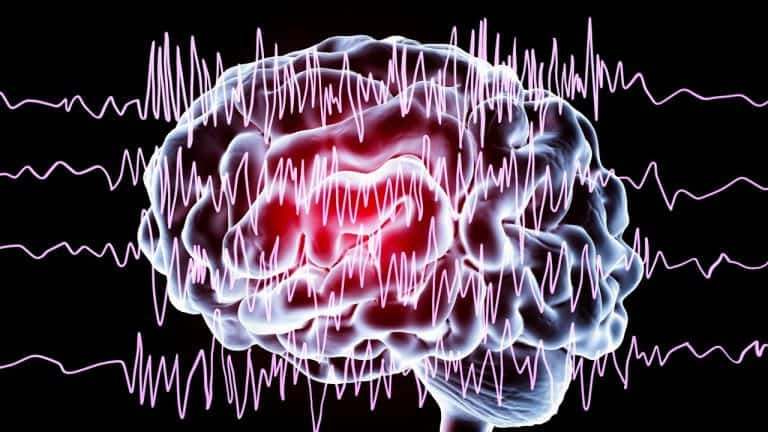Adrafinil is a nootropic drug that is known for its ability to enhance cognitive function, motivation, and productivity. It is a powerful stimulant that is used to help people stay awake and alert, and to improve focus and concentration. The drug is considered to be a safe and effective way to improve mental performance, and it has been used for many years by people all over the world.
The purpose of information is to provide a comprehensive guide to Adrafinil, including its mechanism of action, effects on the brain and body, uses, dosage and administration, and potential side effects.
Whether you’re a student looking to improve your study habits, a professional looking to boost your productivity, or someone dealing with a sleep disorder, this post will help you understand how Adrafinil can help you achieve your goals.
In this post, we will explore the science behind Adrafinil and its potential uses, as well as the recommended dosages and how to take it safely. We will also discuss the potential side effects and the importance of consulting a healthcare professional before taking Adrafinil.
By the end of this post, readers will have a better understanding of Adrafinil and its potential benefits, as well as any risks associated with its use.
How Adrafinil works
Adrafinil works by stimulating the release of certain neurotransmitters in the brain, specifically dopamine and norepinephrine. These neurotransmitters are responsible for regulating mood, attention, and motivation.
When Adrafinil is consumed, it is converted in the liver into modafinil, which then binds to the dopamine transporter and increases the availability of dopamine in the brain. This increase in dopamine levels leads to improved focus, motivation, and overall cognitive function.
In addition to its effects on dopamine levels, Adrafinil also affects the release of norepinephrine, which is responsible for regulating stress and arousal levels. By increasing the availability of norepinephrine in the brain, Adrafinil can help to improve alertness and wakefulness.
Adrafinil also affects the hypothalamus, which is responsible for regulating the body’s internal clock and sleep-wake cycle. By regulating the activity of the hypothalamus, Adrafinil can help to improve wakefulness and reduce the symptoms of sleep disorders such as narcolepsy.
This nootropic works by increasing the availability of certain neurotransmitters in the brain, leading to improved cognitive function, motivation, and alertness. Its unique mechanism of action differentiates it from other stimulants, making it a preferred choice for many individuals who are looking to improve their cognitive performance.
The multiple uses of Adrafinil
Adrafinil has a wide range of potential uses, and it is often used to improve cognitive function, motivation, and productivity. Some of the most common uses of Adrafinil include:
- Improving cognitive function: Adrafinil can help to improve focus, concentration, and memory. It is often used by students and professionals to help them study and work more efficiently.
- Enhancing motivation and productivity: Adrafinil can help to boost energy levels and motivation, making it easier for people to get things done. It is often used by entrepreneurs, business owners, and freelancers to help them stay focused and productive.
- Managing narcolepsy and other sleep disorders: Adrafinil is particularly effective in treating narcolepsy, a sleep disorder characterized by excessive daytime sleepiness. It can also help to reduce the symptoms of other sleep disorders such as shift work sleep disorder and sleep apnea.
- Potential uses in treating other conditions: Adrafinil may have potential in treating other conditions such as depression, anxiety, and attention deficit hyperactivity disorder (ADHD). However, more research is needed to confirm these potential uses.
Adrafinil is considered to be a safe and effective way to improve cognitive function and motivation, but it is important to note that it should only be used under the guidance of a healthcare professional. Additionally, it is not recommended to use it as a long-term solution, as it may cause addiction or tolerance.
Dosage and administration of Adrafinil
Dosage and administration of Adrafinil can vary depending on the individual and their specific needs. However, the general recommended dosage for adults is between 150-300 mg per day. It is important to start with a lower dosage and gradually increase as needed, and not to exceed 600 mg per day.
Adrafinil should be taken orally and can be taken with or without food. It is best to take it in the morning or early afternoon as it can cause insomnia if taken too close to bedtime. It is also recommended to take it on an empty stomach, as food can affect the absorption of the drug.
When using Adrafinil, it is important to be aware of the potential side effects and to consult with a healthcare professional before starting to take it. Some of the most common side effects include insomnia, headaches, and stomach upset. If you experience any of these side effects or any other unusual symptoms, it is important to stop taking Adrafinil and consult with a healthcare professional immediately.
It is also important to note that Adrafinil is not a long-term solution and should not be used for an extended period of time. It is best to use it for short periods, such as for a few weeks or months, with breaks in between. This will help to prevent addiction and tolerance to the drug.
In summary, Adrafinil should be taken under the guidance of a healthcare professional, and the recommended dosage is between 150-300 mg per day, not exceeding 600 mg. It should be taken in the morning or early afternoon, and on an empty stomach. It is important to monitor for any side effects and to take breaks from its usage to prevent addiction and tolerance.
Conclusion
Adrafinil is a powerful nootropic drug that has the potential to improve cognitive function, motivation, and productivity. Its unique mechanism of action makes it an effective solution for people looking to boost their mental performance. It is particularly effective in treating narcolepsy and other sleep disorders and also has potential uses in treating other conditions such as depression, anxiety, and ADHD.
However, it is important to remember that Adrafinil should only be used under the guidance of a healthcare professional and not for an extended period of time. The recommended dosage is between 150-300 mg per day, not exceeding 600mg. It is also important to be aware of the potential side effects and to consult with a healthcare professional if you experience any unusual symptoms.
Personally, I find Adrafinil to be a useful supplement when I need an extra boost of energy, motivation, and focus. It has helped me to stay alert during long working hours and to improve my productivity. It is not a magic pill but rather a tool that can be used to improve mental performance. It’s essential to use it in the right dosage, time, and under the guidance of a healthcare professional.
This nootropic drug can be a useful tool for those looking to improve their cognitive function, motivation, and productivity. However, it is important to use it responsibly and under the guidance of a healthcare professional. It should not be considered as a long-term solution and should be used in combination with other healthy habits such as eating well, getting enough sleep, and exercising regularly.






